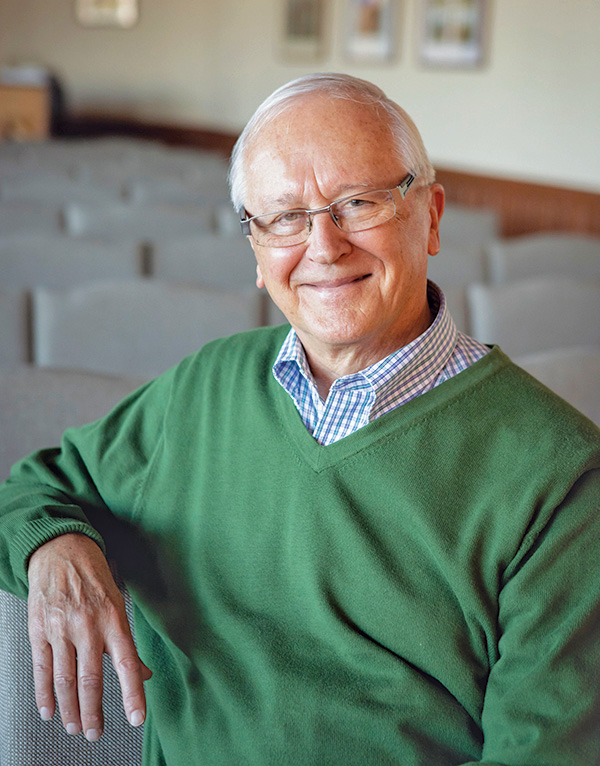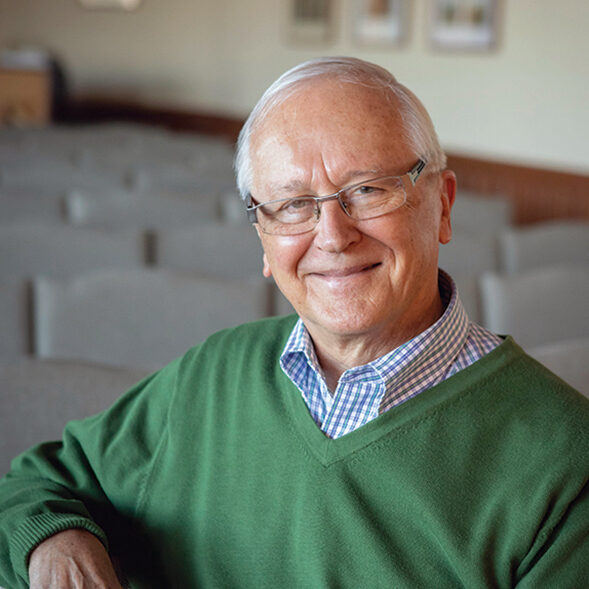 |
 It should be easy to write about love. But perhaps it’s easier these days to write about personal rights and spew outrage and anger at all who disagree. We understand the need to love others, but we may build a fence around our love. We love only those who think like we do or live like we do. Love does not venture outside the fence. There is a place for our harsh opposition or vindictive accusations.
It should be easy to write about love. But perhaps it’s easier these days to write about personal rights and spew outrage and anger at all who disagree. We understand the need to love others, but we may build a fence around our love. We love only those who think like we do or live like we do. Love does not venture outside the fence. There is a place for our harsh opposition or vindictive accusations.
Another distortion seems to exist. Love finds its way into marketing products, social change, and a host of other things. Then love is cheapened and becomes a synonym for tolerance of all contrary thoughts or a welcome mat inviting others to come and enjoy—a kind of “don’t rock the boat” approach. Love then may be a cover for what is immoral—a kind of Woodstock mentality where love eliminates all accusations and judgments.
That all seems pretty harsh, but division and conflict often make love a pious dream that only exists in wishful thinking. How do we love others—really love them? Love is a goal for all people who live under the same sky. Jesus asserted, “Love one another” (John 13:34) and again said, “Love your neighbor as yourself” (Matthew 19:19). He reminds us that love is especially important for his disciples: “By this everyone will know that you are my disciples, if you love one another” (John 13:35). How do we have such love?
The directions on how to love others are there. The words describing love in 1 Corinthians 13 have companions in the Scriptures: “Be devoted to one another in love. Honor one another above yourselves” (Romans 12:10) and “Be completely humble and gentle; be patient, bearing with one another in love” (Ephesians 4:2). John and Peter also add their encouragements to love others (1 Peter 1:22 and 1 John 3:23).
Love is not a vague principle of tolerance of everything. It is a disciplined principle that has a clear source and motivation.
We know all this; we’ve heard it many times. But so often we have to confess with the apostle Paul, “What I want to do I do not do, but what I hate I do. . . . For I know that good itself does not dwell in me, that is, in my sinful nature. For I have the desire to do what is good, but I cannot carry it out” (Romans 7:15,18). Paralyzed by our weaknesses and also at times intimidated by the influences of everyone else around us, we too often retaliate without love.
Love is a Christian principle, but it’s not a vague principle of tolerance of everything. It is a disciplined principle that has a clear source and motivation. Jesus gives us much to think about: “Love one another. As I have loved you, so you must love one another” (John 13:34). Love like Jesus. We understand what his love did for us. He gave himself for us to cleanse us from sin and give us eternal life. That sacrifice has changed us and helps us overcome the paralysis that freezes our impulse to love as he wants us to love.
But the love of Jesus did not ignore what was wrong. He cleansed the temple and spoke the truth in the face of opposition. Yet he was filled with compassion for others and gave himself even for us unworthy sinners who have difficulty loving others. Like him, we speak the truth in love to correct, admonish, and encourage, but gently, with kindness, and—most importantly—with love for those who see and hear our witness.

Author: John A. Braun
Volume 109, Number 08
Issue: August 2022
- We have love
- We have hope
- We have faith
- I come
- Love one another
- Palmetto palms and wrens
- Fathers
- Mother’s Day
- Believe the Word
- The Judas priority
- In Christ
- A thought: Mary
- Come, Lord Jesus!
- A thought: Here we stand!
- A thought: Obedience
- A thought: Hope
- A thought: Almighty God
- A thought: Scripture alone
- A thought: Their message to us
- A thought: The Ides of March
- A thought: The path of the righteous
- A thought: The Bible still matters
- A thought: Happy birthday, Brother!
- A thought: Change
- A thought: Our Father
- A thought: The difference
- A thought: Imperfect world, imperfect life
- A thought: Joy and peace today and everyday
- A thought: Good job!
- In God’s hands
- A thought: Outing death
- A thought: The Christ
- A thought: Trusting what we cannot see
- A thought: Partners
- Heirs of heaven
- Hope
- The Avengers and two lions
- Faith in Jesus
- God’s policy of love
- Lord, have mercy!
- Light in the darkness
- Why?
- The shroud
- A Lutheran Lent
- Where is God?
- Turning pages







